Men, with little experience abroad, lead Danish research – report on department heads shows lack of diversity

The heads of department at Danish universities lack international experience. That is one finding in a new report published by the Royal Danish Academy of Sciences and Letters (Videnskabernes Selskab). The report takes stock of the department heads at Danish universities – who are deemed crucial in running the universities and the future of Danish research.
The average department head at a Danish university is a middle-aged man who has been recruited from within his institution. He has less than five years of management experience and has made his career primarily in Denmark.
The report Institutlederne på universiteterne (The heads of departments at the universities) has looked specifically at the heads of department, since they are a key link between the management and policy level and the research and knowledge creation taking place at universities. Therefore it is important to gain more knowledge about them and their role, say the report writers.
Lack of diversity – “Carstens” lead at CBS and Danish universities at large
The report highlights the lack of diversity in department leadership, which spans several dimensions: gender, age and international experience.
At Danish universities, 75%, or three out of four, department heads are men. At CBS, 9 out of 11 (82%) are men. Four of them are called Carsten – a popular name in Denmark in the sixties and seventies.
CBS’ long-term goal is to reach an equal division of men and women on the post, and in the short term, three to four women out of the 11. But the goal to reach 33% women by 2024 is no longer feasible according to Inger Askehave, Deputy President, who is responsible for appointing heads of department at CBS.
However, she says, it makes it even more important to focus on the process leading up to recruitment of future heads. CBS uses several measures to avoid bias in the recruitment process such as considering language use in the job advertisement, ensuring diversity in the recruitment committee, and holding the first interview round one-on-one to avoid group bias. There is also a policy at CBS for all leadership positions stating that one third of the applicants selected for the second interview should constitute the under-represented gender.
“It’s to make sure we do not narrow down too quickly and make “the obvious choice,” says Inger Askehave.
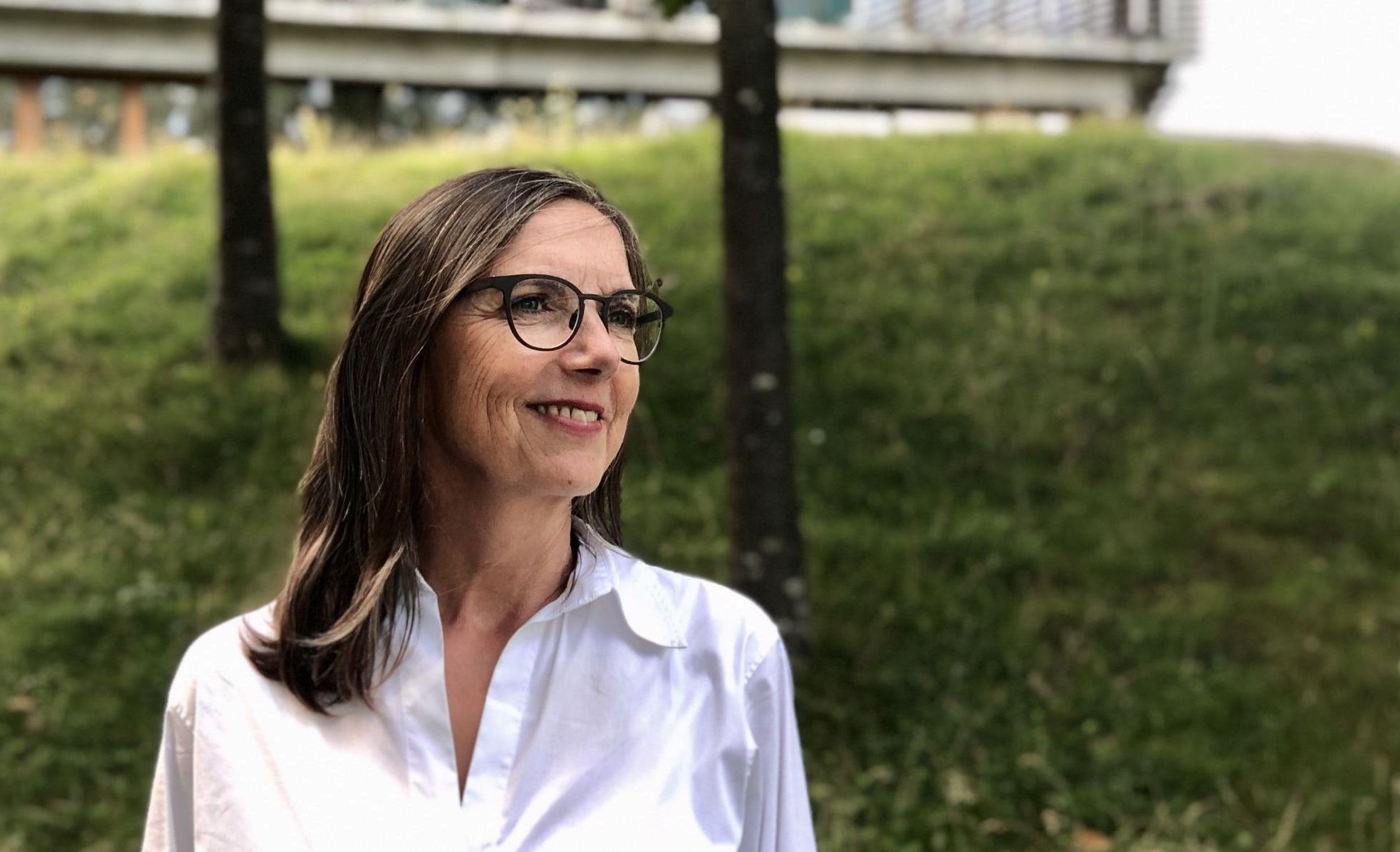
Inger Askehave, Deputy President for seven months. (Photo: Mette Koors & Anne Thora Lykkegaard)
In terms of age, 75% of department heads in Denmark are between 51 and 60 years old, while only 3% are between 40 and 45.
Inger Askehave thinks the fact that many heads of department are middle-aged may owe to the nature of the position as it often involves taking a break from research: “They might have realised their academic ambitions and are ready to move on. Younger researchers might not be in a point in their career where you decide to take six to nine years for leading a department.”
The imbalance in age and gender of department heads is perhaps not too strange, the report concludes, as it reflects the make-up of the body of academic staff from which leaders are recruited. The same, however, cannot be said of another diversity dimension – the lack of international experience.
Because while Danish universities have become more internationally oriented, Danish experience still dominates in leadership positions. 41% of department heads have never worked abroad in an academic leadership or researcher role and only 10% have worked abroad for more than five years.
At CBS, only two of the 11 heads of department are non-Danes. And while some Danish heads of department have completed visiting professorships, research stays or studies abroad, few have spent longer periods of their academic career at foreign universities.
Language might be one reason many internationals do not end up as head of department as often. Notably, while the questionnaire circulated among department heads was available in English, the report, and the conference where it was presented, were in Danish – the irony was not missed by the organisers, who pointed this out during the presentation.
While language is a hurdle, Inger Askehave, thinks it might be easier at CBS, where English is used more widely than at other universities.
“It is not without challenges though. Much of the legal framework we adhere to, national politics, expert committees are in Danish – it can be difficult to tackle in the beginning but certainly not impossible.”
Lack of diversity in these positions may have implications in terms of what kind of research is being prioritised.
Inger Askehave, Deputy President, CBS
She thinks that international experience among her department heads brings a visible contribution.
“It adds yet another perspective on what it takes to lead a department. Not being born and bred inside provides an external perspective on things not obvious to those from within the organisation. As with gender, it brings diversity into the group and you can feel it in the discussions we have.”
What does it mean for Danish research, that it’s led by middle-aged men with experience mainly from Denmark?
“Diversity in research and leadership fosters diversity in research themes, perspectives and solutions, which is crucial if we are to make the most relevant contributions to society. So, lack of diversity in these positions may have implications in terms of what kind of research is being prioritised, how you work with talent recruitment and development, and of course your ability to act as a role model. We are all a product of our life experiences and have biases – this goes for both men and women – but we can work our way around this by joining forces with people that complement us”.
“Diversity in university positions in general is poor, not only at the level of heads of department but also at associate and full professor level. Of course, it influences the outlook and take on research, education and outreach.”
She would like to see more diversity among CBS’ department heads.
“That goes within the university as a whole, but it’s not something you can make a decision about and just get. It requires a continuous focus on the structures, policies, culture within and also outside CBS.”
The world is your oyster
Adam Lindgreen, Head of the Department of Marketing, is an exception. After completing his MSc in Denmark, he left for Israel, where he did a one-year postgraduate program, and then the UK, where he did his MBA and PhD, while spending 18 months in New Zealand.
He then started his academic career at universities in Belgium and the Netherlands before returning to the UK, where he worked at several universities. His last appointment abroad was as professor and head of the Department of Marketing and Strategy at the Cardiff Business School, before, after 21 years, he returned to Denmark as professor and head of the Department of Marketing at CBS in 2016.
Adam Lindgreen says he did not travel much as a young boy. It was always something he wanted.
“I think of George Mallory – a mountaineer in the 1920s. He was asked why he wanted to climb Mount Everest and he said: ‘because it’s there’. That’s part of why I do it. Here is this big world and I want to see and experience it.”
During his bachelor study, he went abroad for a longer time for the first time. That was to Israel. He was planning to do his bachelor thesis in Scotland, but ended up staying in Denmark because of his girlfriend. While he thinks there are many reasons Danish academics stay at home – he suspects significant others are holding some of them back.
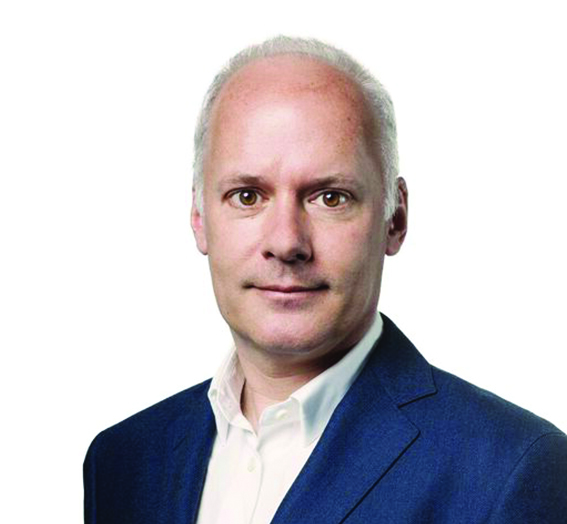
“All other things equal, the more you have been abroad at other places, the more doors you can open and the bigger network you have to build on and attract to CBS,” says Adam Lindgreen says, Head of Department of Marketing, CBS. Photo: CBS.
“Often, academics are established in Denmark and have a partner or even kids and it’s difficult to travel.”
For one period, he and his wife lived in one country, and each worked in another. Three different countries with two children was not easy to juggle.
“It was very complicated. Why did we do it? We did it to further our careers and for the experience.”
He sees Danish salaries as another factor, when recruiting academics from abroad.
“You often can earn more abroad. However, I was a Dane and wanted to come back.”
Adam Lindgreen thinks his career has exposed him to different academic traditions, perspectives on research and teaching, and cultures that he would not have had in Denmark.
“I have taken that home. With only eight universities, there are differences but probably not so many because it is a small country.”
The language barrier
Adam Lindgreen thinks international experience is valued at CBS – it was when he was hired, and CBS imprints the value of international experience on its PhDs. He is also glad to have recruited people to his department from abroad – some have actually come to Denmark with their families.
But looking at the current numbers in Denmark, it seems international colleagues will be less likely to end up in leadership positions than their Danish colleagues.
“The reason it’s basically Danes applying for these positions, although we have many international colleagues, may be that they find it challenging to be in a role, where a lot of Danish is still involved.”
Mitchell Dean, Head of the Department of Business Humanities and Law, and one of CBS’ two non-Danish heads, also believes language is a barrier.
“CBS is progressive in that it is open to people beyond the Nordic region, although most advertisements at Danish universities require a Nordic language. I think people in these posts should be encouraged to develop their Danish language skills, but given the prevalence of English and the international profile in universities such as CBS, language should not be used to rule out excellent candidates.”
He came to his role after a period as acting head when he realised he enjoyed working with colleagues across different disciplines and fields. He also had experience from a similar leadership position in Australia, so the language did not put him off.
“I knew something of the Danish university landscape and how CBS worked. I recognised there would be challenges but they didn’t create anxiety.”
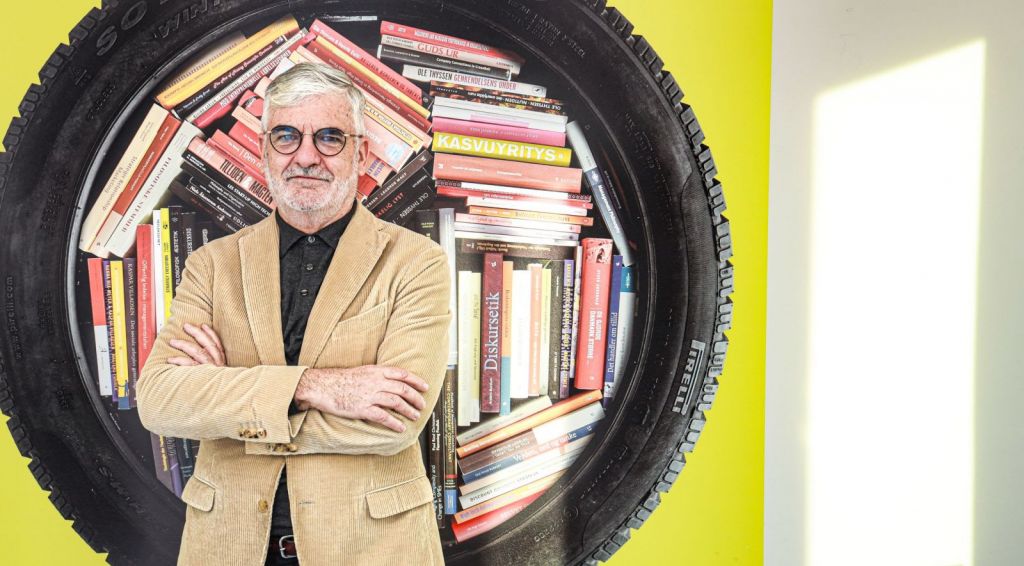
Mitchell Dean, Professor and Head of Department, Business Humanities and Law came to Denmark and CBS after a long academic career in his home country Australia. Photo: CBS/Anna Holte.
Similar to Adam Lindgreen, he thinks the perspective from abroad brings a lot to the role.
“National educational systems and universities are run differently. You bring a perspective to how things are governed, how budgets are done, the expectations of academic staff. It is my view that it is much harder to make innovation if you only know one system from the inside.”
I think it is important for CBS to also bring in experience from other places not only in terms of research.
Alexander Sebald, Head of the Department of Economics
He thinks that the head role could be more properly recognised and offer better salaries to attract international candidates.
“I agree with the report that they should be classified as academic not TAP positions, and I agree there should be fall-back positions. This would attract people who are not only top academic managers but high-level researchers. The latter is important because the heads must understand the work of researchers and gain the respect of them to be effective.”
Loyalty pays?
For those aspiring to become head of department, long and faithful service within the institution seems the safest bet. Most CBS department heads – just like their colleagues at other universities – have been recruited in-house. Eight out of the 11 have spent 17 years or more at CBS. In Denmark overall, 66% of department heads were internally recruited.
CBS currently has only two department heads who were recruited directly to the position from outside CBS – Adam Lindgreen is one. The other, soon to complete two years at CBS, is Alexander Sebald. He took up his role as Head of the Department of Economics straight from a position at the University of Copenhagen (KU).
He had enjoyed the experience of managing research groups and wanted to take on the challenge of managing “very creative and intelligent people”.
Alexander Sebald also defies the average by being relatively young, at 46 years of age, and with a foreign background.
A German, he completed his studies in Belgium, Italy and the Netherlands before coming to Denmark in 2008 where he started his academic career at KU.
Though a foreigner, Alexander Sebald and his family have made Denmark their home and he is not an academic passing through. He thinks that helps him in his role as head of department where he sees knowing Danish as “important but not decisive”.
Danish is useful for administration and policy, but at the research level, Alexander Sebald thinks the international experience can bring a lot.
“I think it is important for CBS to also bring in experience from other places not only in terms of research. It’s important to also have heads that have experienced a different institutional and cultural context. CBS operates in very global environment.”
Inger Askehave says internal experience is not a criterion for selecting heads of department.
“It’s more important to understand what CBS is and aspire to make a real contribution in the development of the department. What are the strategic ambitions in terms of research, education and outreach, how will you achieve it, can you nurture an academic environment – how do you attract and retain talent? Lots of things! Sometimes it’s easier with an “outsider” perspective to make changes – you are not biased by many years within the organisation. But then again it is not disqualifying either to have a background from CBS. It is simply not a criterion in my view.”
The fact that so many heads end up internally recruited she thinks is due to the nature of the position and there being little mobility at higher levels. The fact that she, and her colleague, University Director Arnold Boon, both came to CBS from similar positions at other Danish universities is unusual.
“It goes with many leadership positions, that moving within same level is not common. But I see it as a real advantage; you come with a lot of experience while bringing a new perspective on things”.


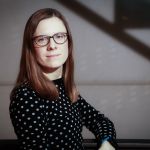


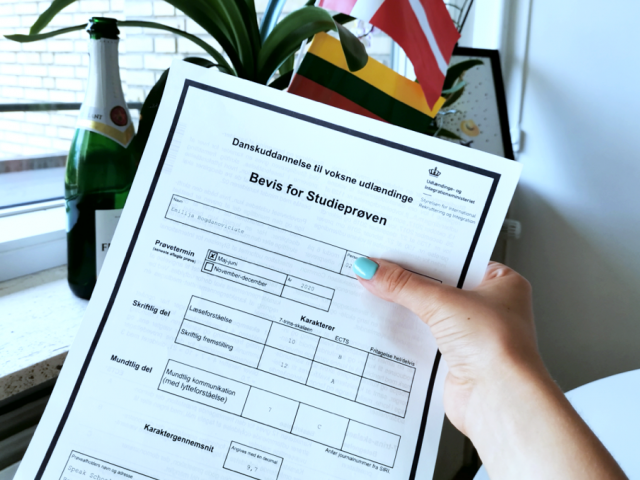
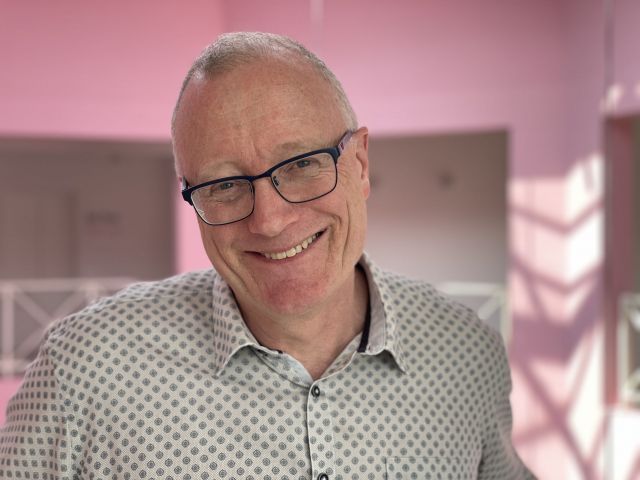
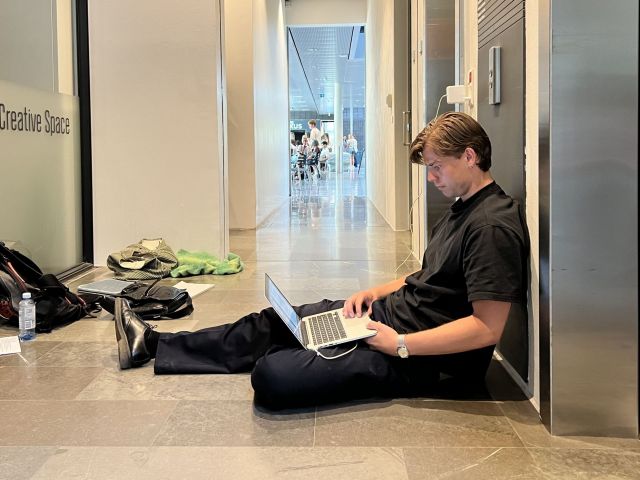





























































































































I can not attach a screen dump so here is copy paste. The internet never forgets…
“Lack of diversity in department head positions in Danish universities
NEWS: Men, with little experience abroad, lead Danish research, new report shows. The numbers from CBS confirm this lack of diversity. Nine out of eleven are men. Four of them are called Carsten. And only two are non-Danes.
How does CBS compare?”
The title was never changed.
I can see, that you have changed the title, it was “Lack of diversity in department head positions in Danish universities”, and still very much focusing on the middle-aged man as a problem. And the Carstens are also white. So white, middle-aged men are a problem. Not due to competence, but because of their personal features. So, that´s a classic sexist statement…
I guess it´s no coincidence that this article is so biased, but I know, that´s it´s a trend. It´s just not very suitable for a university newspaper to live by the bias, unless you want to practice politics?
Diversity is definitely relevant, so please treat it carefully. An article with the opposite angle, e.g. “Lack of diversity in HR-functions, the Mette´s rules here” would probaly not have been written, and if it would, it would definitely include more aspects and respect. Which you could also have done based on the survey.
Good luck.
Dear anonymous reader
Diversity, also regarding gender representation, is a topical issue. It is therefore highly relevant for CBS WIRE to cover a new report which focuses on issues of diversity and the amount of international experience at Danish Universities in general – and question the status and whether CBS lives up to its own diversity goals.
The opening paragraph directly relates the conclusions of the report by Videnskabernes Selskab. The article lifts the findings of the report and some key people at CBS’s opinions on it, not the reporters. CBS WIRE has nothing against white, middle-aged men (some of our friends belong to this group) and we do not use this term in the article. We are not pointing a finger at anyone in particular, but the article has a focus on the diversity of the group as a whole.
The four Carstens is an interesting fact, also demonstrating the homogeneity of this group.
Best regards
Birgitte Ramsø Thomsen, Editor-in-Chief
I have an odd feeling after reading this article – if I was one of the Carstens I would be appaled by this.
I notice that the concept of “competence” doesn´t seem relevant here in this article. Also it is practising the art of appealing for diversity all while at the same time having a sexist tone against “white middleaged men”. Just read the beginning…
We are a university, right? The enemy here should be incompetence and ignorance, not specific gender groups.
Diversity surely has it´s advantages for all. Equal access is key. So please stop pointing fingers at competent people simply because you don´t like their gender, skin color or background, including white, middleaged men.